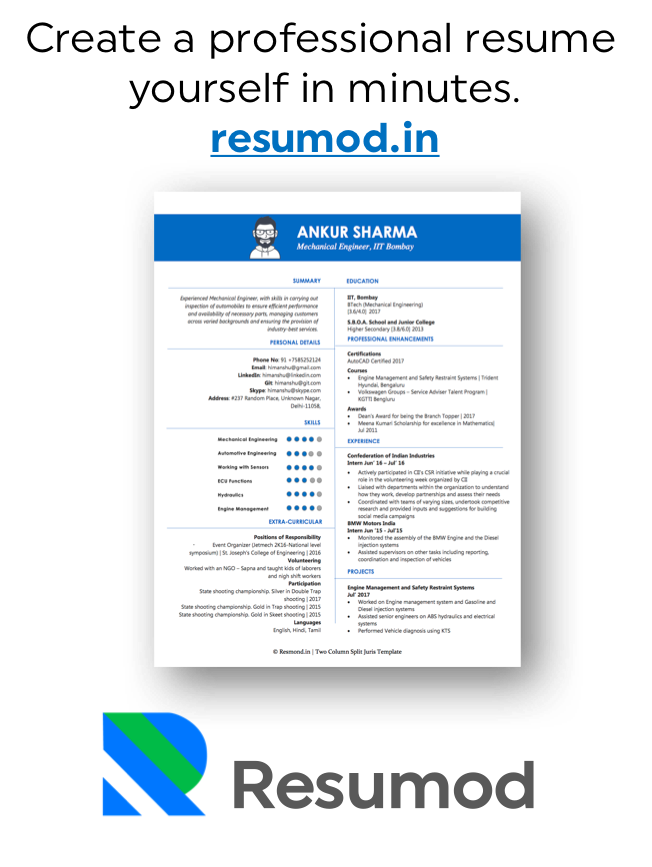In 2024, over 56% of Indian hiring managers reported detecting at least one case of resume fraud – a record high, according to a Nasscom Talent Integrity Survey. From fabricated work experience to forged degrees, resume manipulation has become an alarming trend in India’s recruitment ecosystem.
As technology advances, so do the methods of deception. But thankfully, tech is also evolving to fight back. In this blog, we explore how resume fraud is impacting Indian employers, and how recruiters are using innovative technology to stay one step ahead.
What Does Resume Fraud Look Like in 2025?
Resume fraud in India is no longer limited to stretching job titles or exaggerating achievements. Recruiters are now encountering:
- Fake employment stints with non-existent companies
- Forged academic degrees and certificates
- AI-generated work samples passed off as personal projects
- Altered timelines to cover employment gaps
- Fake references or “rent-a-reference” services
What’s worse? These fraudulent claims often make it past traditional screening processes, especially when teams are under pressure to fill roles quickly.
Why the Traditional Hiring Funnel Cannot Keep Up?
The average corporate job opening receives over 250 applications, according to Glassdoor. Out of those, only a handful are shortlisted for interviews. Yet most recruiters still rely heavily on:
- Manual resume reviews
- Basic background checks
- Email confirmations or reference calls
- Intuition or gut feeling
These methods are prone to delays and human error. Worse, they’re ineffective when fraud is sophisticated and strategic.
As a result, many qualified candidates get buried in the noise, while deceptive applicants can slip through the cracks.
Where Tech Enters the Picture
To address both volume and verification issues, Indian employers are investing in automated hiring tools that help them detect red flags early and maintain hiring integrity.
AI-Powered Resume Screening
Advanced resume parsers now use machine learning to:
- Identify keyword stuffing
- Detect unusual job progressions
- Spot inconsistencies in formatting or date overlaps
- Cross-reference publicly available employment data
These tools do not just scan for skills – they analyse the resume for patterns of potential deception.
Blockchain-Based Credential Verification
Institutions like IITs and IIMs have started issuing blockchain-verified degrees. You have access to platforms that helps organizations authenticate academic and professional credentials in real-time – eliminating reliance on scanned PDFs or unverifiable attachments.
Recruiters can now receive tamper-proof digital certificates directly from universities and certifying bodies, ensuring authenticity at the source.
Skill Assessments and Behavioural Testing
Pre-interview testing platforms assess candidates for:
- Technical proficiency
- Communication skills
- Role-specific problem-solving ability
Candidates who claim to be experts in data analysis, for example, can be tested using live dashboards or scenario-based exercises. These assessments reduce dependence on resumes and provide concrete proof of capability.
Video Interview Analysis
AI-backed video tools are being used to detect:
- Speech inconsistency
- Confidence levels
- Alignment between verbal and non-verbal responses
Though not definitive fraud detectors, these tools flag profiles that may require further review—especially when the resume looks perfect but the interview does not.
Automated Background Checks
End-to-end platforms now automate:
- Employment history checks
- Criminal background verifications
- PAN and Aadhaar validation
- Reference verification with scoring metrics
All while ensuring data privacy and compliance with India’s Digital Personal Data Protection Act.

Why It Matters Across Industries?
Industries that are compliance-heavy or reputation-sensitive face even greater risk from resume fraud. Here’s how different sectors are responding:
- IT & Tech: Using AI to evaluate technical portfolios and code tests.
- Healthcare: Verifying medical licenses and patient-care certifications through government registries.
- Finance: Screening for regulatory breaches or employment history in banned firms.
- EdTech & Learning Platforms: Vetting teachers and content creators for real-world experience.
In high-stakes environments, a single hire based on a fraudulent resume can cost the organization not just money, but also credibility.
The Cost of a Bad Hire
According to SHRM, companies in India may spend an average of ₹3.5–7 lakh per hire when accounting for training, onboarding, and operational resources. If the hire turns out to be fraudulent, these costs can double or triple, not to mention the impact on team morale and customer trust.
And yet, many firms still rely on outdated systems and manual verification, leaving themselves vulnerable.
What Senior Professionals Need to Know
If you have spent 15+ years in the industry, you may assume your experience speaks for itself. But with AI and automated screening, even senior profiles can get flagged due to:
- Vague role descriptions
- Missing dates or mismatched titles
- Unverified certificates or outdated references
To avoid this, ensure your documents are:
- Clear and consistent
- ATS-optimized
- Digitally verifiable
Recruiters now prefer digital resumes with embedded verification links or certification hashes over traditional PDFs.
How Recruiters Can Stay Ahead?
For recruitment heads and hiring managers, tackling resume fraud requires proactive strategy – not just reactive tools.
Here is what experts recommend:
- Audit your current hiring funnel: Identify where most drop-offs or verification issues occur.
- Invest in layered tech: Start with resume screening and credential validation, then add behavioural and skill testing.
- Set clear documentation standards: Request blockchain-verified credentials and professional references with institutional emails.
- Maintain data transparency: Always inform candidates about the use of automated screening and ensure GDPR or DPDP compliance.
Looking Ahead: The Future of Hiring Integrity
Over the next five years, we will likely see:
- A rise in skill-based hiring: Portfolios and live tests will matter more than polished resumes.
- Wider use of digital wallets for credentials: A shareable, verified skill profile may replace the traditional resume.
- Recruiters becoming data interpreters: With automation handling the volume, the human role will shift toward decision-making, not document screening.
Final Thoughts
Resume fraud in India is a growing concern – but not an unbeatable one. With the right mix of technology, processes, and policy awareness, recruiters can detect fraud early, protect company interests, and reward genuine talent faster.
It is time to stop relying on instinct and start trusting data-backed decisions. Because in a world where resumes can be manufactured, only verification can lead to transformation.






